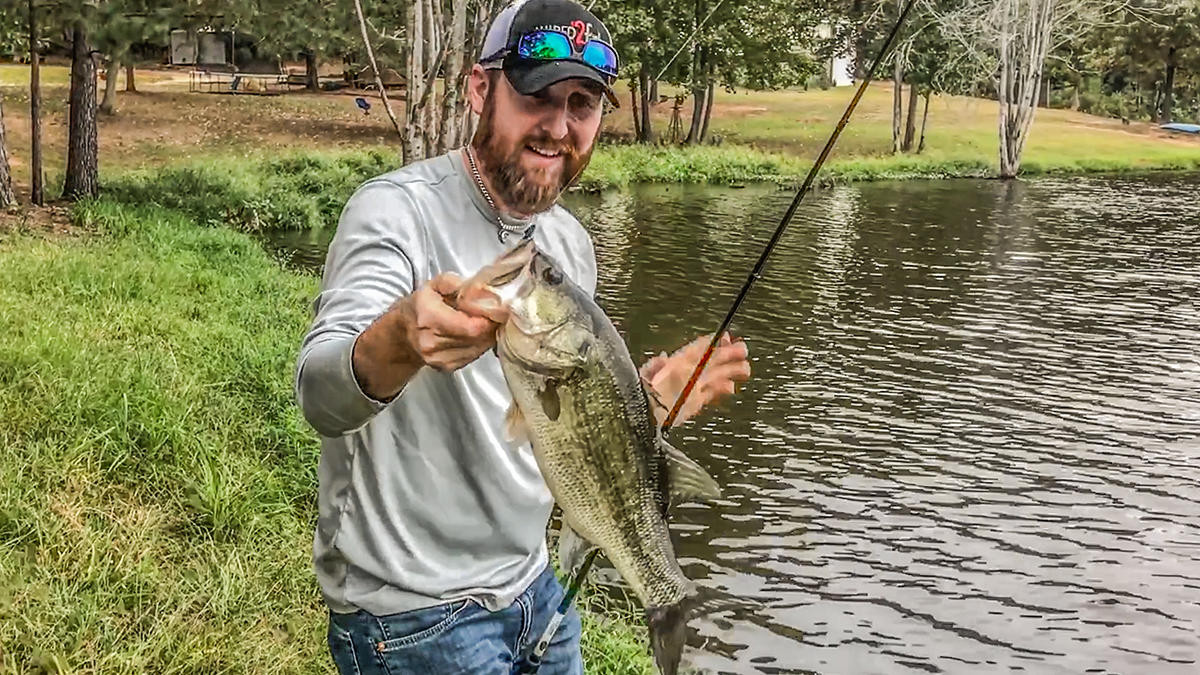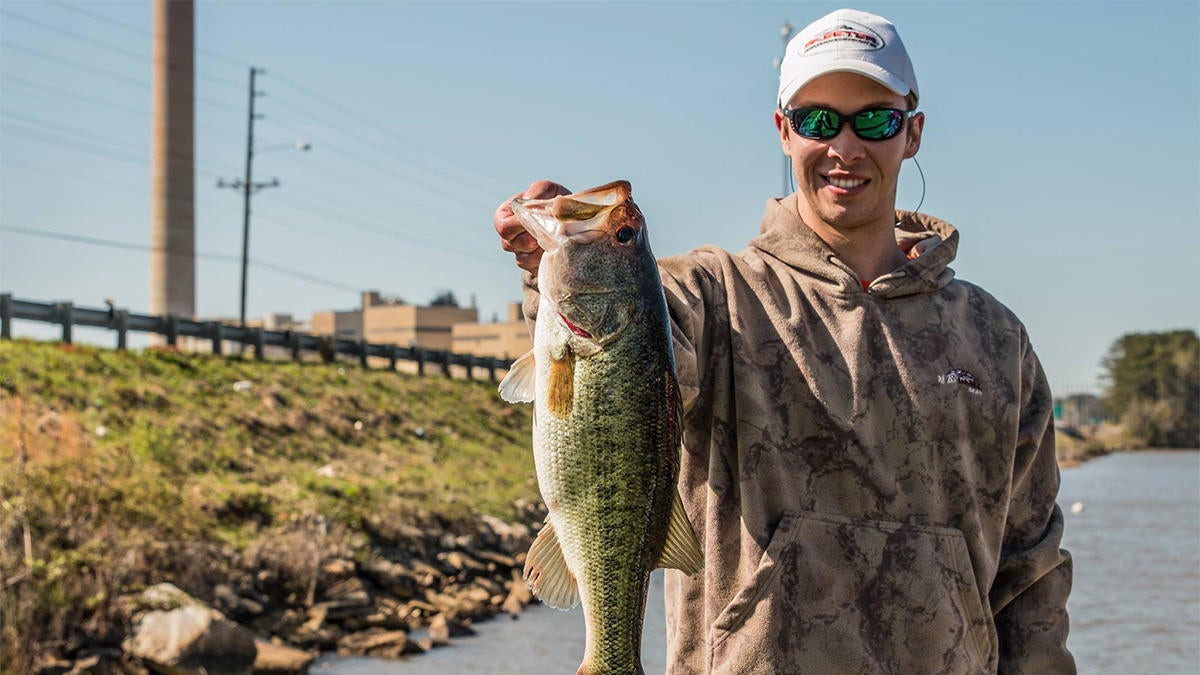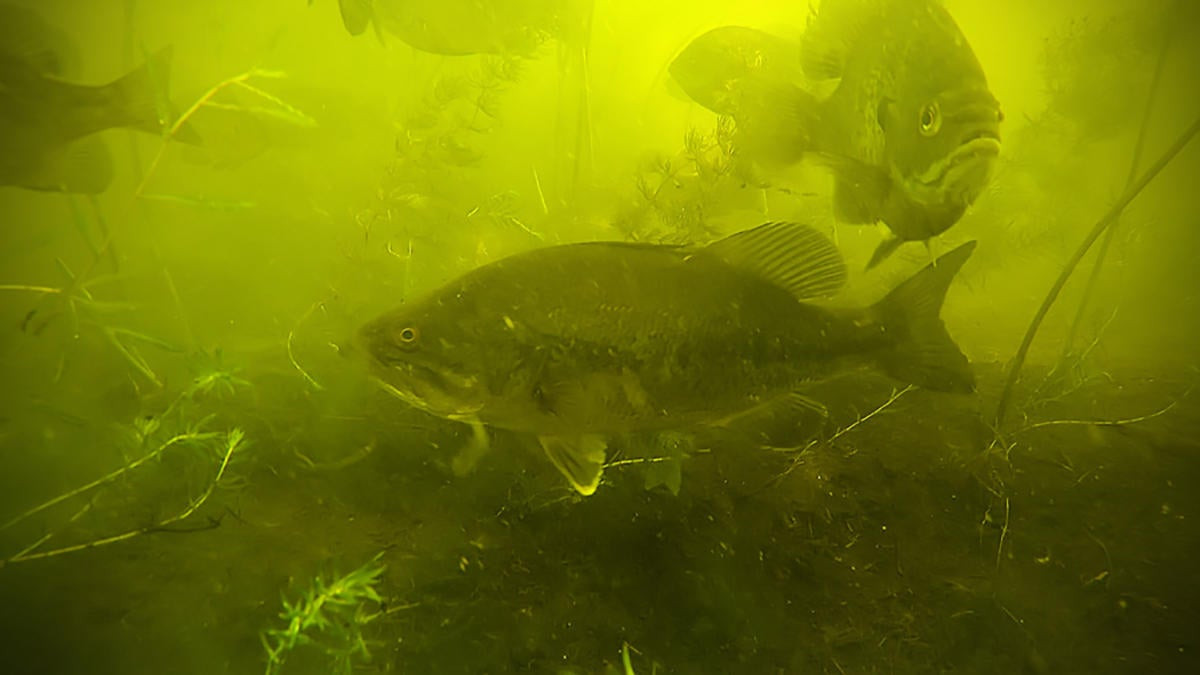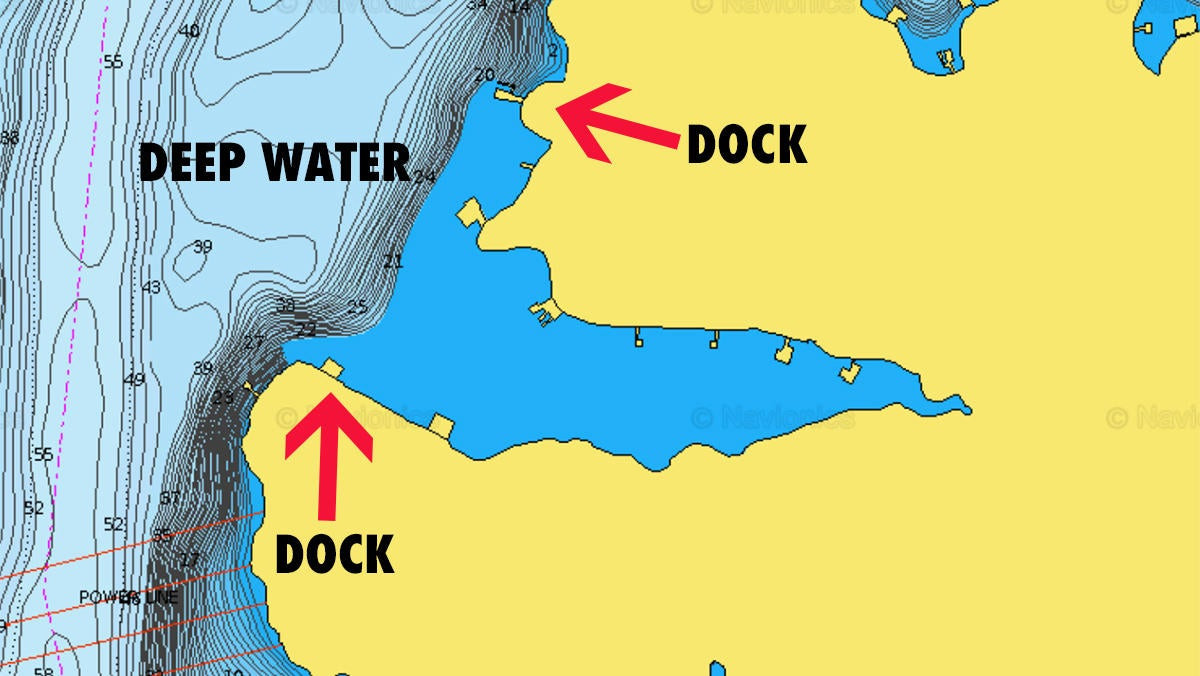Bass fishing is an interesting beast to conquer in my opinion. For whatever reason, I’ve become a lot more introspective towards it this year and it has made me realize how many misconceptions we have about everything. Our bass fishing mentors taught us certain things when we were younger and due to the sentimentality of it, we tend to consider it as gospel without much questioning.
Now, I’m sure all those folks knew their stuff; I’m not discrediting them one bit. But I’ve done a lot of thinking lately and I really think the things I’m about to discuss will dramatically increase your chances of bass fishing success. I sure as heck don’t know everything and I don’t have all the answers. But some things have happened in my fishing circle lately that have opened my eyes to some fairly interesting things.
Let’s dig into it and see if we can help each other out.
Excuse the cliché, but time on the water really is irreplaceable
Man, I can’t tell you how tired I get of bass fishing clichés. I could go on for hours about them and come across as a crotchety old man but I’ll spare you the headache. Something happened to me lately, however, that really drove home one of the most overused clichés used in this sport.
One of my best friends has been fishing tournaments for well over a decade. He has always been a great fisherman and he’s the kind of guy who seems like he wakes up with 14 pounds in his livewell. The way that dude consistently catches solid keepers is something that, quite frankly, I’m a little jealous of. He has always been able to find and catch 3-pound bass. I don’t know about y’all, but around these parts, that kind of a limit will get you paid nearly every single weekend.
But a few years ago when we were chewing the fat after a tournament, he was pretty ticked off with himself. He caught a solid mid-teens bag during a tough summer derby and missed the win by a pound or two. He told me how frustrated he was that he hardly runs across that one big kicker bass that’s often needed to win a large 150- to 200-boat tournament. I sure didn’t have an answer because he’s a heck of an angler. But I nodded my head and listened like an old fishing buddy should.
In the next year or two, this guy hit an extra gear that I didn’t know existed. Evidently he was sick and tired of barely missing the big victories and he started spending every waking minute on the water. He didn’t ask anyone for information and was determined to find his own “deal” and figure things out for himself. If he wasn’t at work, that boy was fishing.
Period.
Fast-forward to the past two years and I can confidently say that there isn’t a more consistent and successful angler in this part of the state. He’s also a two-time BFL All-American qualifier. He has learned how to close the deal and find those big bites more often than not. I’ve picked his brain about it several times and he always reiterates how important his time on the water has been. You can research, watch videos and read articles to supplement your first-person experience but if you don’t take it upon yourself to get off the couch and get your rear end on the water, it’s all for nothing. So I guess the older generation is dead-on when it comes to the decades-old cliché: There is absolutely no replacement for time on the water.
I’ve seen this with myself as well. Last winter, I got tired of fishing in the cold. Call me soft or whatever but man, we had a month-long cold snap and I just got sick and tired of dealing with it. As a result, my happy butt was planted in a deer stand for several weeks at a time. There’s certainly no harm in changing up to keep things fresh but I feel like that month-long hiatus put me behind by five or six months if I’m being honest. Once I dragged the old Skeeter out of my shop and dunked the trailer in the water, I felt totally lost. I wasn’t “one” with the fish movement anymore and I was playing catch-up for the rest of the winter. Believe it or not, this actually carried over into the February and March prespawn period as well. It was, by far, my worst prespawn in over a decade.
Patterns, bites and fish behavior changes by the day and the only guarantee in bass fishing is constant change. It’s really tough to be an intermittent angler, if that makes any sense. You can’t work on car motors “sometimes” and expect to be the best at it. You can’t be a part-time carpenter and act surprised when someone is better than you. I truly believe it’s the same with bass fishing. If you’re serious about getting better, you have to be on the water every single second you can. The more changes in weather, patterns and behavior you can see will allow you to adapt and overcome with much more speed and, most importantly, confidence.
You can’t rely on other people’s fish
This can be a touchy subject for some but I don’t write about it looking for a reaction. Instead, I write about it because it runs rampant in this sport and it’s something that I learned the hard way a long time ago. Again, something that happened to me just a few weeks ago made me want to write about this. I even jotted it down on a piece of paper to make sure I remembered it.
Around here, it’s fairly known that I don’t fish many tournaments anymore. I have absolutely nothing against tournament fishing and I fully support it. But with renovating a lake cottage and other family things going on, I simply don’t have the time to fish a derby every Saturday anymore. I’ll get back to it after a while but for now, it’s just not a priority.
I still fish a lot, though, because it’s a large part of my job. My tournament buddies know this and as a result, my phone gets blown up before big tournaments on my home lake. It got pretty nuts two weeks ago before the first 2021 tournament of the biggest trail around here. I felt like a dang call center and eventually, I just had to put my phone on vibrate and set it on my bedside table to get a little peace and quiet.
Now I don’t mind helping my buddies one single bit. I’m not the type of guy who is overly secretive with fishing information because my job is to… teach people about fishing. But the frantic, last-minute calls I was receiving reminded me of a very important lesson I learned back in college.
My partner and I had a tournament in a different state on a fishery we’ve never fished. Heck, I don’t think I had ever been within 100 miles of it. I had a bunch of tests and some projects due before the tournament, so we really didn’t get to practice. As a lot of guys do, we called around to some buddies to see if they could drop us a few hints or at least give us a starting point before the official practice period. Nothing was illegal and we followed all of the information off-limits rules to the letter. I don’t mess around with stuff like that; I never have and I never will.
So we got a few nuggets of information. We went to a suggested area on the first day of the tournament and found our own pattern and our own bite. But we were definitely around fish. We had a great bag of fish that day and had our chests puffed out a little bit.
Here’s where the lesson was learned.
A big weather front came in after day one of the tournament and guess what? It wasn’t “our” area. We were told to go there. As a result, we didn’t have a doggone clue what to do or how to adapt when the weather changed. We were floating around like a bunch of ding dongs without any backup plan. We were trying to catch someone else’s fish and needless to say, it wasn’t working.
We didn’t know how the fish reacted to weather fronts. We didn’t know the contours of the area. We didn’t know any of the hidden stump flats or underwater rocks that surrounded the area. We relied too much on somebody else and didn’t do enough of our own homework. I will never forget a single detail of that tournament because I learned one of the toughest bass fishing lessons I’ve ever learned and it’s worth repeating: You cannot rely on other people’s fish.
I can mark up a paper map of my home lake for you and all that’ll do is put you behind the curve. You’ll be so focused on my unfamiliar areas that you’ll get tunnel vision and completely forget any of your own fishing instincts. You could do the same for me; you could tell me the best places on your home lake and I’ll look like a total moron out there. I won’t know how the current hits certain places, the best way to position my boat or the “juice” stumps that the big ones tend to get on. It’s nearly impossible to operate that way and in all reality, it just makes you a worse and less versatile fisherman in the long run.
It’s like getting the answers for a college exam before you take it. Yeah, you might make a 100 on the test but did you really learn anything?
Learn the “why” instead of the “where”
For this last point, I’m going to share with you something that happened just a week or two ago. It got my wheels turning and I remember telling my wife, “Remind me about this so I can write about it.”
I have a great friend who is just now getting into tournament fishing pretty heavy. He acknowledges that he’s a newbie and he doesn’t try to act like he’s a hotshot. I absolutely respect that about him. I think some egos get a little too big in bass fishing and thankfully, his head seems to be in the right place. As a result, I’m more than willing to help him anyway I possibly can. I’ll teach him about lures, different gear ratios, patterns… whatever he asks, I do my best to help this dude out. As I said earlier, I don’t nearly have all the answers but I do my best to provide guidance when he asks.
I’ve noticed something about him that seems to set him apart from others with whom I’ve dealt in the past. This boy doesn’t want to know “where” to go catch fish. He’s not looking for handouts and he doesn’t expect me to tell him every single secret hidey-hole on the lake. Instead, he wants to know “why” I fish in certain places. I know that I can take him to certain areas and I don’t have to worry about him showing other folks or beating it to a pulp. He makes it a point to understand the “why” behind everything so he can replicate it on other fisheries or in other parts of our home lake. I respect the hell out of that, to be honest. He’s going to be a handful in tournaments here eventually because he doesn’t want handouts. He wants to do it the hard, old-fashioned way that includes blood, sweat and tears.
When I was first getting started in bass fishing, especially tournament fishing, I can remember agonizing over the simplest decisions on Friday nights before a tournament. Should I tie on a green pumpkin-colored jig or a watermelon red-colored jig? Just small stuff like that. I would literally sleep two hours before the tournament because I was so obsessed with stuff my buddies have told me. “Dock talk” is what they call it these days. I’d show up to these dang tournaments worn slap-out because I was completely overthinking every possible decision I might have to make. It’s a little embarrassing to write about, actually.
My buddies would tell me specific points, docks or brush piles to hit and I revolved my entire game plan around their suggestions. I erased anything I had learned first-hand while fishing throughout the week. I didn’t do any critical thinking for myself and it led to two things: Unbelievable and totally avoidable anxiety and crappy tournament finishes. I would get my pretty little teeth knocked right down my throat every single weekend. In hindsight, I didn’t need to know which specific docks or pieces of cover held bass.
Instead, I needed to know why those dang fish were there. Was there deep water adjacent? Was it near some sort of channel swing? Were the fish holding close to the metal jetski lift instead of the wooden posts of the dock? Would it only eat the crankbait my buddy told me about and not a Texas rig? Were they on vertical cover like dock ladders? Now that I’m older and a little more mature as an angler, I’ve learned that these deeper questions create more independent critical thinking which, in my opinion, is the best and fastest way to become a better angler. Some people can handle dock talk and some folks can’t. To this day, I don’t mess with it. Several of my best friends in the world fish this lake every day and I’ll never ask where they’re catching them. In the long term, it’s going to hurt me a lot more than it will help me.
As I mentioned at the beginning of this piece, these are three things that have really been weighing heavy on my mind lately. The older I get, the more I tend to consider the philosophical aspect of this weird, beautiful sport. I hope you’re able to grab a few nuggets from these redneck ramblings and maybe they’ll help you be a more successful angler. I’ve learned a lot of hard lessons over the years and if you can use my experiences to shorten your personal learning curve, I’d be tickled pink.















